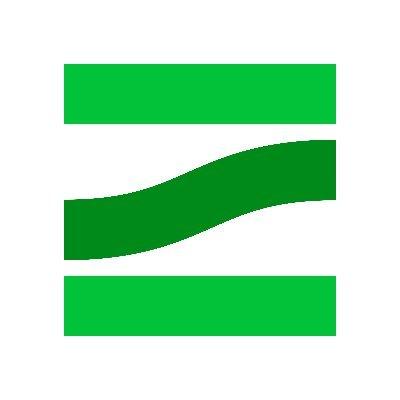Invest in private assets
Buy pre-IPO stock in private companies
Investments
$10
Fundrise allows a minimum investment of $10 for taxable accounts and $1,000 for IRAs.
Investments
$10,000
The minimum investment on EquityZen is $10,000, though this may vary by offering.
Moderate Risk
3/5
Investing with Fundrise involves risks such as limited liquidity, potential modifications to the share repurchase program, market volatility affecting asset values, the possibility of total investment loss, and regulatory changes impacting operations.
High Risk
4/5
Investing in private companies via EquityZen involves risks such as limited liquidity, market volatility, company performance uncertainties, regulatory changes, less available information, and potential lack of diversification, which could impact investment returns.
Minimum Liquidity
1/5
Fundrise offers liquidity through its share repurchase program, allowing investors to redeem shares quarterly with no penalties or costs.
Minimum Liquidity
1/5
EquityZen offers liquidity for vested shares only. It does not provide liquidity for unvested shares, unvested RSUs, or options directly.
Receive new reviews from Fintorial
Low Return
4.81 %
Investors on Fundrise can expect returns through dividends and appreciation, with an average income return of 4.81% over 7 years.
Not Predictable Return
N/P
Unlike public market investments, private investments carry higher risks and unpredictability. Consequently, it's challenging to define a standard return rate for EquityZen investments.
Long-term Investment
5+ years
Fundrise is designed for long-term investments, ideally for a period of 5 or more years, due to its focus on strategies aimed at long-term return potential.
Long-term Investment
2-5 years
Typically, companies on EquityZen have received late-stage funding, suggesting an expected investment horizon of 2-5 years, but outcomes can vary widely.
Who can invest
United States
To be eligible to invest with Fundrise, individuals must meet several criteria: they must be at least 18 years old, have permanent residency in the United States, possess a valid U.S. tax ID, and file taxes in the U.S. The platform is open to both accredited and non-accredited investors.
Moderate Volatility
3/5
Assets on the Fundrise platform, such as private real estate and venture capital, typically show lower volatility compared to public stocks and bonds, due to less frequent valuation updates and reduced exposure to daily market swings.
Moderate Volatility
3/5
Assets on EquityZen, which are shares in private companies, can be highly volatile due to limited public information, sensitivity to market conditions, low liquidity, and company-specific events, leading to significant price fluctuations.
Regulation and audits
SEC Regulated
Fundrise is regulated by the SEC and must comply with strict reporting, disclosure, and operational standards. It undergoes regular independent audits to verify financial accuracy, legal compliance, and the effectiveness of its internal controls, ensuring transparency and integrity in its operations for investor protection.
Regulation and audits
SEC Regulated
EquityZen Securities is registered with the SEC and is a member of FINRA/SIPC, ensuring it adheres to regulatory standards and practices for investor protection and undergoes regular audits.
Insurance
No
Investments on Fundrise, including real estate and alternative assets, are not insured by the FDIC or any other government agency, exposing investors to the risk of loss without insurance protection.
Insurance
No
EquityZen is a FINRA/SIPC member firm, offering account protection up to $500,000 (including $250,000 for cash claims) through SIPC in case of brokerage failure, not covering market value losses.
Payouts
Dividends
Dividends are paid quarterly, based on income from portfolio projects, and can be either reinvested or cashed out. Appreciation comes from increases in the value of the investment, reflected in the net asset value (NAV) of shares. Returns start accruing after investment settlement, typically within 5 business days, and can be tracked on the Investor Dashboard.
Payouts
No Recurring Payouts
Investors in private companies on EquityZen typically do not receive dividends, as these companies often reinvest profits to fuel growth.
Withdrawals
To withdraw funds from Fundrise, investors must submit a liquidation request. Liquidations are reviewed quarterly for most funds, with a waiting period for the eFund. No penalty is charged for liquidating shares from the Flagship, Income, or Innovation Funds, but eREIT and eFund shares held for less than five years may incur a penalty. Liquidations are processed on a "First in, first out" basis.
Withdrawals
Investors can get their money back from investments on EquityZen mainly through an IPO, acquisition of the company, or secondary market sales on the platform. However, returns depend on market demand and timing of these liquidity events, with no guaranteed timeline.
Extra Fees
Yes
Fundrise charges a 0.15% annual advisory fee, a 0.85% management fee for real estate funds, and a 1.85% management fee for the Innovation Fund. Early liquidation of eREIT or eFund shares before 5 years incurs a 1% penalty.
Extra Fees
Yes
EquityZen charges a 5% fee to sellers upon transaction closure. For investors, a one-time sales fee applies: 5% for investments up to $500,000, 4% for $500,000 to $1 million, and 3% for over $1 million.
Taxes
Tax Form
Fundrise investors can expect Form 1099-DIV for eREITs or interval funds with distributions over $10, Schedule K-1 for eFund shares, and Form 1099-B for liquidated shares. Tax documents are issued at the end of January for 1099-DIVs and mid-March for K-1s, available on the investor dashboard. Multiple funds in a portfolio may result in receiving multiple tax forms.
Taxes
Tax Form
EquityZen issues a Schedule K-1 for taxable events and provides vetted tax documentation to investors. Upon investment, individuals complete necessary tax forms (W-9 or W8-BEN) and receive annual tax updates.

